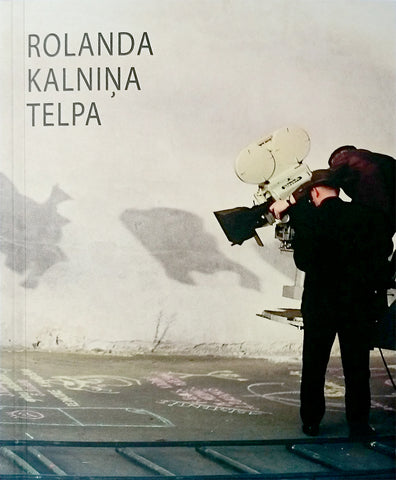
Collaboration of eight authors has resulted in a voluminous, richly illustrated book, reflecting different themes and perspectives in the oeuvre and life of the outstanding film director. The idea of the book was conceived a year before Rolands Kalniņš’s 95th anniversary when it became clear that several film researchers, independently of each other, have already accumulated a considerble material.
It turned out that each of us had been trying to access the creativity of Rolands Kalniņš’ through a different door being aware that it offers extensively rich and diverse materials for completely different studies and scholars. To write a comprehensive book only a few more doors had to be opened and some light to be shed on [..]. It all bubbled and was born gradually acquiring shape and form and the chapters got lined up, all of them together conveying a multi-faceted insight into everything that is to be found in the spiritual space of Rolands Kalniņš’ creative life.”
Kristīne Matīsa

The nine facets in the book’s title mean nine analytical texts. Thus Dita Rietuma characterises Rolands Kalniņš as the most accomplished adept of modernism in Latvian film history; Daira Āboliņa analyses his special gift for work with actors; Aija Rozenšteine discusses his complex relationship with censorship; Ieva Pitruka focuses on the films that Rolands Kalniņš did not make – paying special attention to the most radical of them: "Maritime Climate" (1974). Toms Zariņš investigates Kalniņš’s physicl space and its visuality; Zane Balčus accentuates the most outstanding among his few documentary films – Vija Artmane’s portrait "Conversation with a Queen" (1980). Jūlija Dibovska discusses the concept of body in his feature films; Kristīne Matīsa explores his relationship with the text. And finally, Ieva Putruka offers a closer look at Rolands Kalniņš’s biography and personality.

The book is a testimony about Rolands Kalniņš’s sensitive and precise perception of the world’s current trends and movements despite the Iron Curtain. His 1960s-70s films fit perfectly in the context of world film history, sharing the language of French "new wave", Italian neorealists, Czech and Polish avantgarde and the nost outstanding Russian films of the period of Thaw. The highest estimation of Rolands Kalniņš’s oeuvre undoubtedly is the inclusion of his film "Four White Shirts" (1967) in the Cannes Classics programme alongside the works of Ingmar Bergman, Alfred Hitchcock and Stanley Kubrick.
